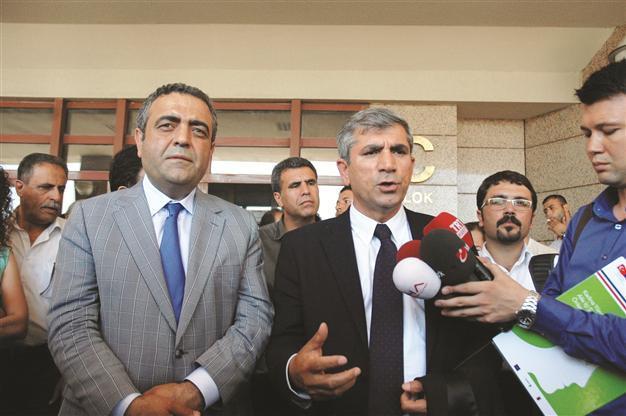CHP in counter-attack on AKP’s Kurdish move
ANKARA

Main opposition Republican People’s Party (CHP) deputy Sezgin Tanrıkulu (L) has submitted the draft law on the Kurdish issue to Turkish Parliament.
A day after the ruling Justice and Development Party (AKP) submitted a bill providing legal framework for the ongoing Kurdish peace talks, the Republican People’s Party (CHP) has introduced its own bill in a bid to accelerate the process.Sezgin Tanrıkulu, deputy leader of the CHP, submitted the draft law to Parliament on June 27, stating they aimed to create a common language between political parties to bring about a resolution to the Kurdish question.
Tanrıkulu’s draft law suggests the establishment of a Social Conciliation Commission under Parliament and a Collective Mind Delegation to work in coordination with Parliament.
“The solution to this problem cannot be found without eliminating the social and political polarization created in the last 30 years. Implementing different approaches from four different political parties would bring lasting peace,” Tanrıkulu said in his statement.
“The purpose of our draft law is to create direct and permanent dialogue between political parties, to minimize a difference in their approaches and opinions so a democratic solution [to the Kurdish issue can be achieved],” he said.
Removing this issue from polemics and quarrels between parties is extremely important, he noted, adding the government’s response to their draft law will set another test of their sincerity.
The CHP’s move came just a day after the AKP submitted an important bill on the ongoing peace talks. The government’s bill suggests immunity to those who were involved in negotiations and providing a legal framework to the resolution process.
Kurdish political parties welcomed the draft law, but stressed they would seek some minor amendments on it during deliberations at the commission or at the General Assembly.
Abdullah Öcalan, the Kurdistan Workers’ Party (PKK) imprisoned leader, deemed the move as a “historic” step in the relationship between Ankara and the PKK.
















